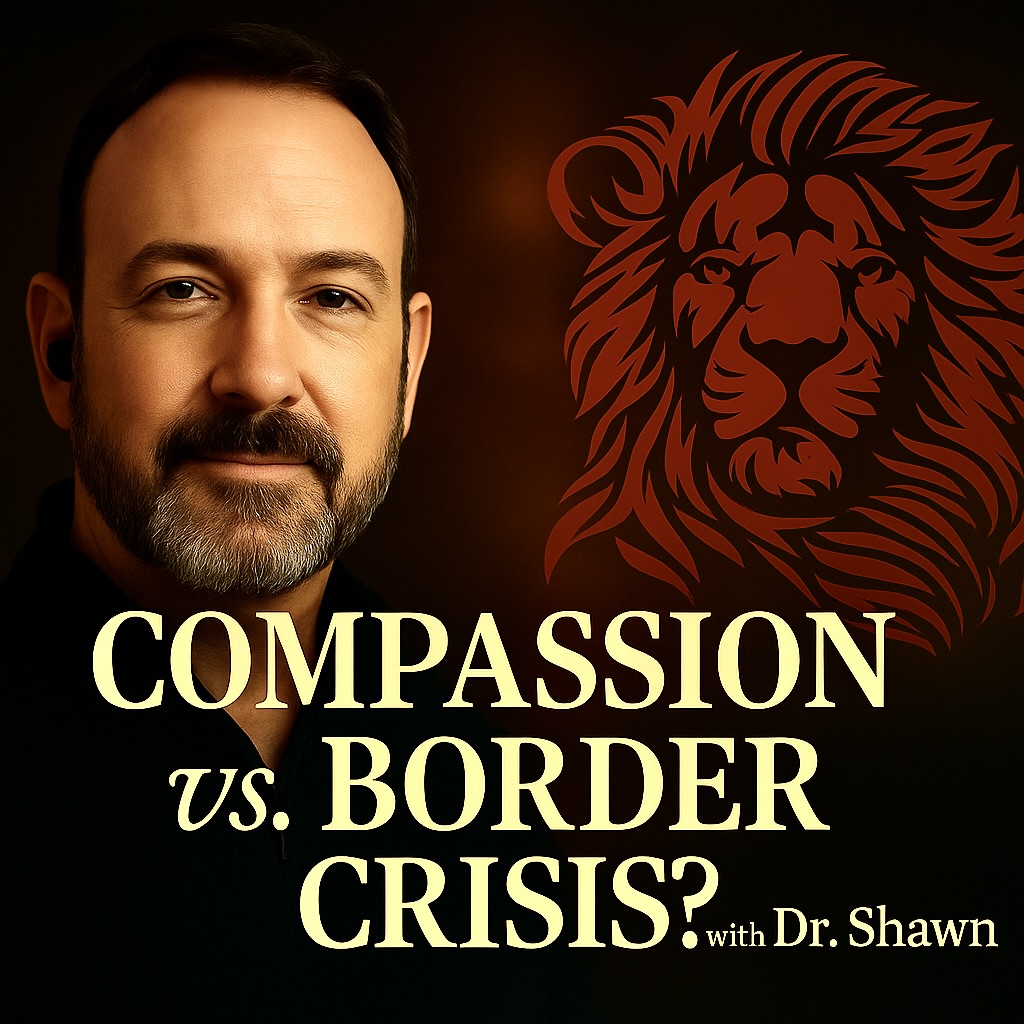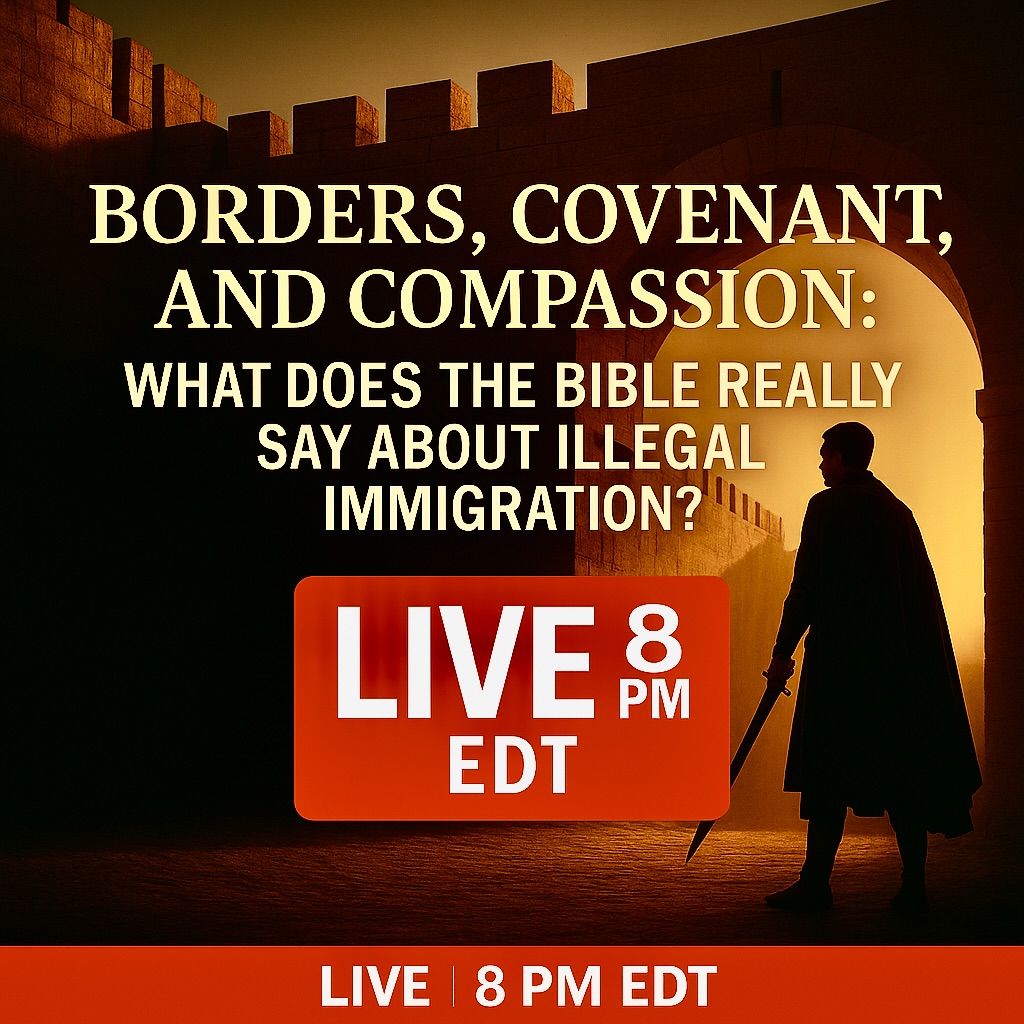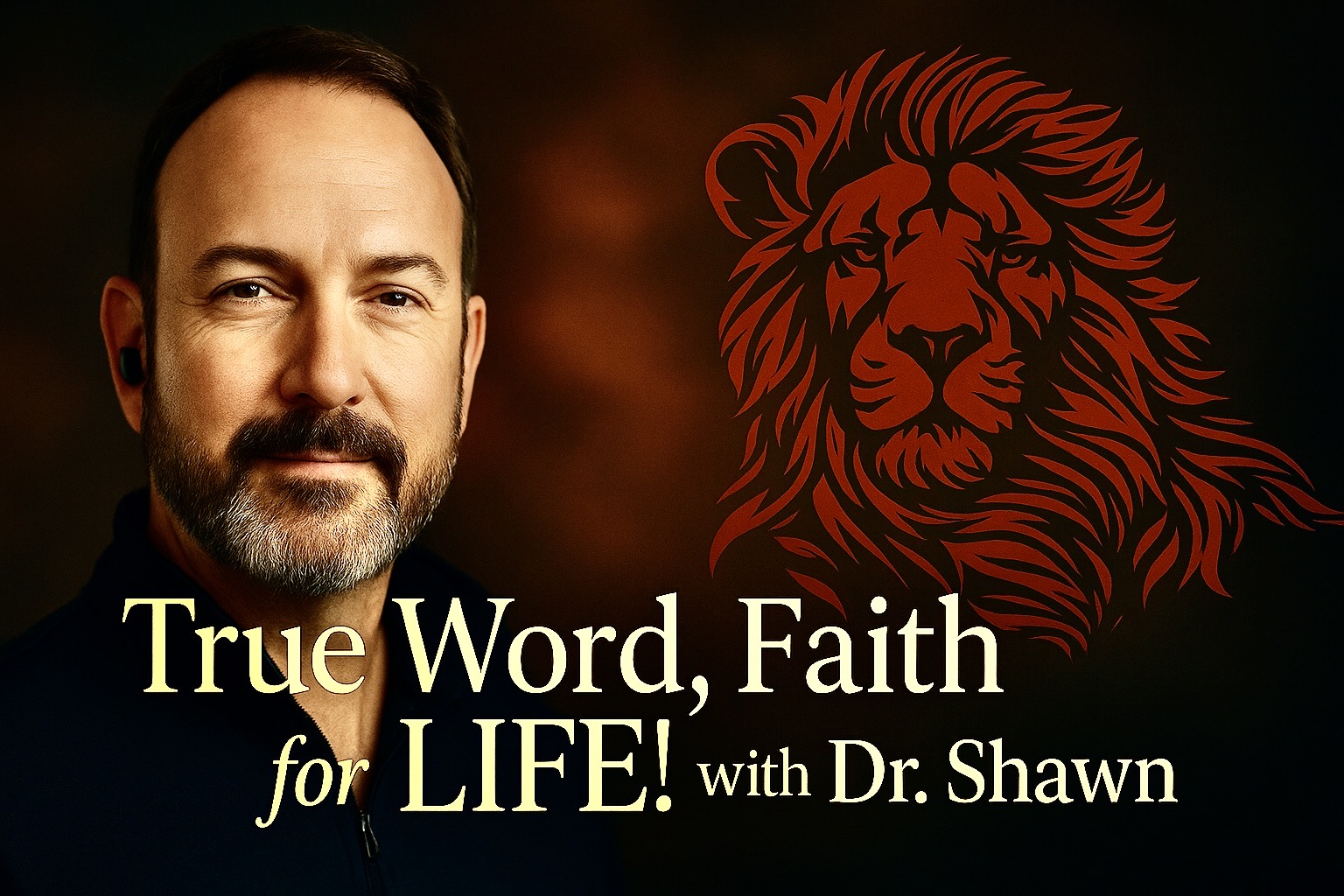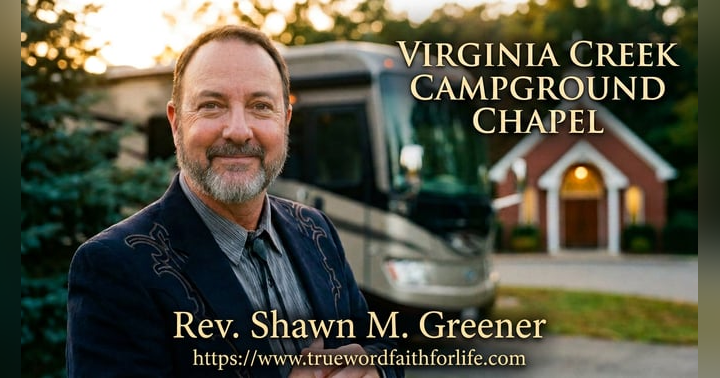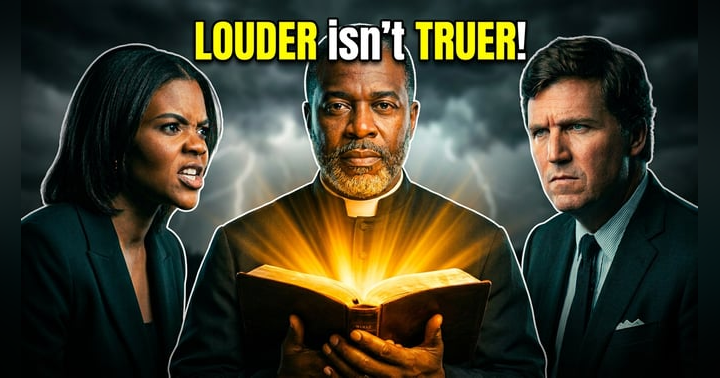Borders, Compassion, and Covenant Order: What the Bible Really Says About Immigration
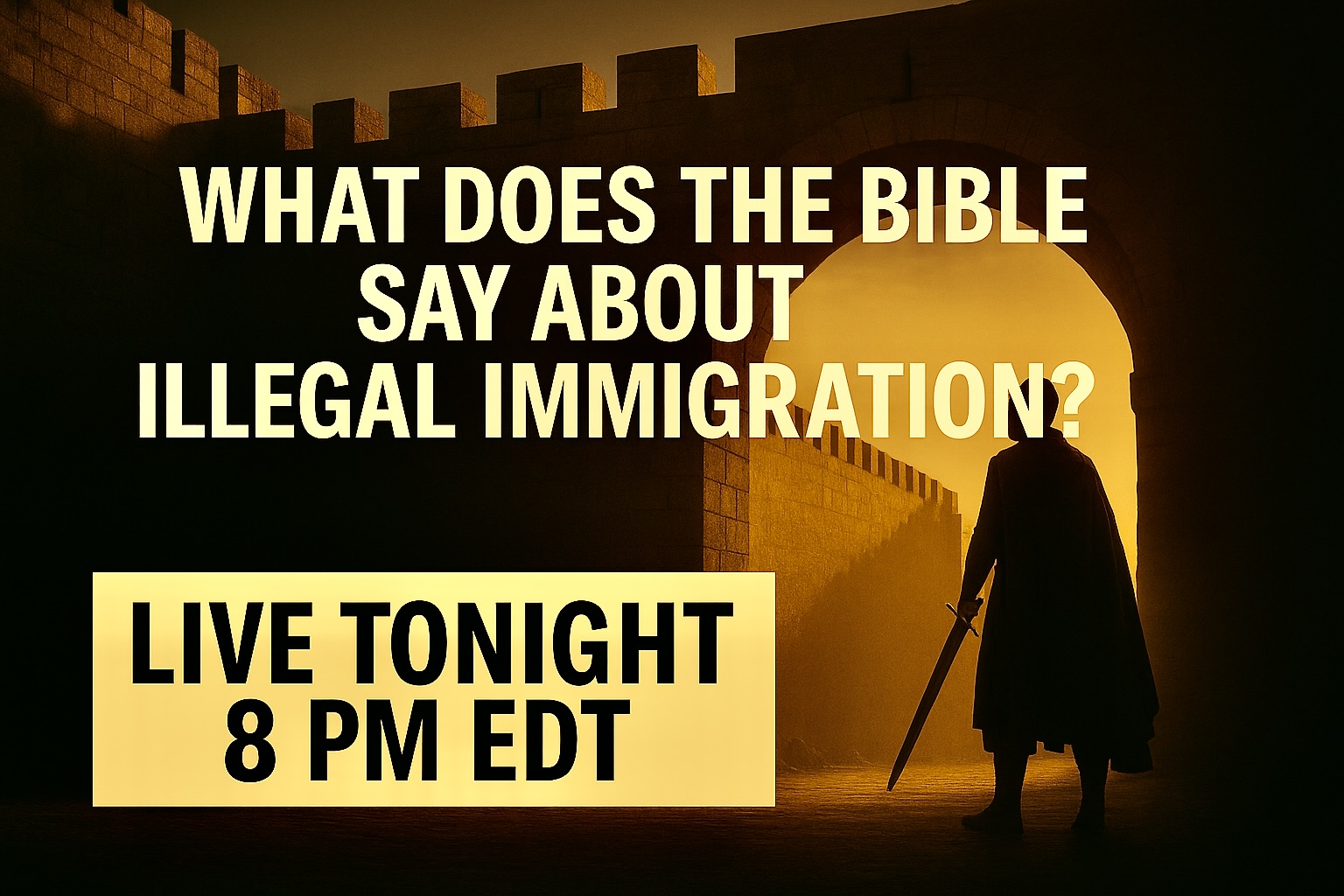
Borders, Compassion, and Covenant Order: What the Bible Really Says About Immigration
Series: Faith Under Fire – Covenant in the Modern World
By Dr. Shawn M. Greener
What if compassion without law is not love at all, but disorder disguised as mercy? What if the command to “love the stranger” was never a call to erase boundaries, but an invitation to live righteously within them? The world screams that Jesus would have “open borders” and oppose the enforcement of law. But the Word of God says something very different. Today, we explore what Scripture really teaches about borders, compassion, and covenant order.
Introduction: Compassion and Confusion
Across America, believers are wrestling with a moral question that touches both politics and theology: How should followers of Yeshua view immigration, law, and national borders?
Many well-meaning people appeal to the Parable of the Good Samaritan, insisting that love demands open borders, government provision for all, and the removal of deportations. Others see law enforcement as incompatible with compassion.
But both sides often miss the depth of Scripture. To understand God’s position, we must return to the Ancient Near Eastern world, to the languages, culture, and covenant patterns that shape the Bible’s worldview.
The Good Samaritan and Its Context
Yeshua’s parable in Luke 10:25–37 is about personal compassion, not national immigration policy. A Torah scholar asked, “Who is my neighbor?” Yeshua responded with a story of a man beaten by robbers and ignored by two religious figures, then rescued by a Samaritan who paid for his care.
The Samaritan acted as a neighbor; one who reflects the hesed (covenant lovingkindness) of God. The story’s power lies in its shock value: a despised foreigner acts righteously, while religious insiders fail morally.
But to apply that parable to national immigration laws is to commit proof-texting, taking a personal moral lesson and forcing it into a civil or national framework that the text never addresses.
As Dr. Michael Heiser often said, “All truth is God’s truth, but not all truth applies the same way in every domain.” The Good Samaritan parable teaches individual ethics, not government policy.
Covenant Order and the Boundaries of Nations
From Genesis to Revelation, God defines righteousness not only by moral character but also by order. He is the God who separates, establishes, and defines boundaries.
In Genesis 1, God divides light from darkness, sea from land, heaven from earth.
In Deuteronomy 32:8, we read, “When the Most High gave the nations their inheritance, He set the boundaries of the peoples according to the number of the sons of God.”
In Acts 17:26, Paul echoes this truth, declaring that God “determined the times set for them and the exact places where they should live.”
Boundaries, in the biblical worldview, are sacred. They are not tools of exclusion but instruments of order, a visible expression of God’s authority in creation and governance.
Dr. Skip Moen often reminds his readers that in Hebrew thought, holiness means functioning according to design. When a boundary is violated, the created order itself is disrupted. Thus, when nations lose their moral or physical boundaries, chaos replaces covenant.
The Stranger in the Land: Ger vs. Nokri
The Hebrew Bible distinguishes between two types of foreigners: the ger and the nokri.
•The ger is a sojourner, a foreigner who lawfully resides in the land and submits to its laws and covenant order.
•The nokri is an alien who remains outside covenant responsibility, often bringing idolatry or rebellion.
Exodus 22:21 commands, “You shall not wrong a ger or oppress him, for you were gerim in the land of Egypt.”
But in Deuteronomy 23:20, the nokri is excluded from certain covenant privileges.
In other words, Scripture makes a clear legal and moral distinction between foreigners who live within the law and those who remain outside it.
This distinction parallels our modern context: the lawful immigrant and the unlawful entrant. Both are made in the image of God and deserving of dignity, but they are not the same in terms of covenant or civil standing.
The Role of Law in Covenant Society
In biblical terms, mercy operates within law, not apart from it.
Romans 13:1–4 teaches that government authority exists to maintain order, punish wrongdoing, and protect peace. When Paul wrote those words, Rome was no godly nation, yet he still affirmed its legal authority as ordained by God.
Without enforcement of law, mercy loses meaning, because mercy presupposes justice. A nation that refuses to enforce its laws ceases to protect the innocent, and in so doing, betrays its moral duty before God.
Nehemiah understood this when he rebuilt Jerusalem’s walls. His work was not an act of exclusion but of obedience. He guarded what was holy and reestablished what sin and neglect had destroyed. “We prayed to our God and posted a guard day and night” (Nehemiah 4:9).
Ezra, too, led Israel in repentance by restoring purity and covenant order. These were acts of spiritual reformation, not political cruelty.
Modern Law and Biblical Principle
U.S. immigration laws align remarkably well with the biblical idea of ordered compassion.
•8 U.S.C. § 1325 makes unlawful entry a federal misdemeanor.
•8 U.S.C. § 1326 criminalizes reentry after deportation.
•8 U.S.C. § 1324 prohibits harboring or transporting undocumented individuals, including material assistance in avoiding law enforcement.
•8 U.S.C. § 1373 forbids local jurisdictions from obstructing cooperation with federal immigration authorities.
These laws are not instruments of hate but of order. Compassion must always flow through righteousness, not around it.
When a nation loses its ability to enforce its laws, it becomes vulnerable to chaos. Compassion without structure is sentimentality, not holiness.
The Misuse of the Gospel in Politics
It is true, as Shane observed, that some have wrapped the gospel in political flags. That is dangerous. But the opposite error is just as perilous; using the name of Jesus to justify lawlessness, social disorder, or neglect of justice.
Yeshua was neither partisan nor passive. He fulfilled the Law of Moses, not by abolishing its structure, but by embodying its spirit of truth and mercy. His life shows us that love fulfills the law because it honors the purpose of law, not its absence.
To say, “Jesus would never deport anyone” is to ignore that He Himself said there would be a final separation of nations and peoples (Matthew 25:32). Separation, in Scripture, is not hatred; it is holiness.
ANE Patterns of Protection and Covenant Sovereignty
In the Ancient Near East, the concept of land ownership and boundary was deeply theological. Every territory was believed to be under the authority of its patron deity. When Israel guarded its borders, it was not nationalism, it was covenant faithfulness.
God’s land was to be holy, His people distinct, His laws upheld.
Violation of boundaries was not only a political crime, it was a spiritual rebellion.
Dr. Heiser points out in The Unseen Realm that when nations rebelled at Babel, God divided their territories among the “sons of God” (Deuteronomy 32:8). Only Israel was preserved as His direct inheritance. Sovereignty, therefore, is both divine and moral.
To this day, when nations abdicate moral order, they invite spiritual disorder.
Challenge and a Choice
Here is the challenge: Will we let false compassion redefine righteousness? Will we stand for covenant order in a world that calls law enforcement “hate”?
And here is the choice: You can either let emotion dictate your theology or let Scripture inform your compassion. You can bow to cultural pressure, or you can live by covenant principle.
The same God who commanded mercy also commanded law. His people must embody both, not one at the expense of the other.
Prayer of Salvation
If you are tired of running and if you are ready to place your trust in Yeshua the Messiah right now, pray with me from your heart:
“Avinu Malkeinu” (Our Father, our King),
I come to You with humility and faith. I admit that I have sinned and fallen short of Your glory, just as it is written in Romans 3:23.
I turn away from my sins in teshuvah (repentance) and return to You.
I believe that Yeshua HaMashiach (Jesus the Messiah) is the Son of the Living God, that He died for my sins, was buried, and rose again on the third day.
Your Word says in Joel 2:32 and Romans 10:13, “Everyone who calls on the Name of Adonai will be saved.”
Today, I call on Your Shem HaKadosh (Holy Name).
Forgive me, cleanse me, and make me new.
Fill me with Ruach HaKodesh (the Holy Spirit), and write Your Torah on my heart.
From this day forward, I choose to follow Yeshua as my Lord, my Redeemer, and my King.
Thank You for saving me, making me part of Your covenant people, and giving me eternal life.
In the Name of Yeshua HaMashiach, Melech HaMelachim (the King of Kings), I pray. Amen.
Before we close today, I want to ask you for one simple favor. If this episode stirred your heart, if it helped you see God’s Word more clearly, or if it challenged you in your walk of faith, please don’t keep it to yourself.
Think of one person you know who needs encouragement, truth, or hope. Send this episode to them right now. Be that friend who shares truth in a world filled with confusion.
And if you’re on social media, would you post the link to this episode and let others know what blessed you? You never know who might be scrolling today and find exactly what they need to hear through your share.
If you do not want to share this, please email me at smgreener@gmail.com and help me understand why not. No judgment, I just want to understand why after more than 400 podcasts, people are listening but not sharing.
This has been True Word, Faith for LIFE! with Dr. Shawn M. Greener.
Remember, compassion without order is chaos, and law without mercy is tyranny. Live with both truth and grace, walking in covenant faithfulness to the God who sets boundaries and blesses obedience.
Shalom b’Shem Yeshua.
